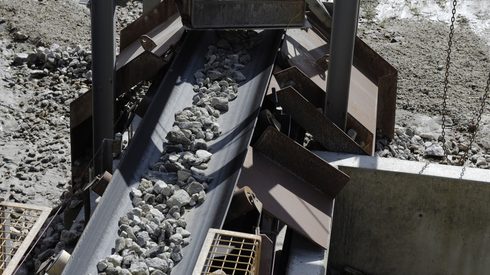This is due to a worsening Covid-19 situation in Vietnam, especially in its business hub Ho Chi Minh City.
The country will further extend its lockdown to September 15 amid surging Covid-19 infections. The city was the locality with the highest number of infections on Thursday, with 4,425 cases, followed by Binh Duong, with 3,255 cases.
Hanoi, Vietnam’s capital, reported 53 cases on Thursday.
Higher offers
Scrap sellers have raised offers for both containerized and deep-sea bulk cargoes from the United States West Coast.
While these offers have been linked to rising freight rates and a shortage of container vessels, some market participants are perplexed because scrap prices in Turkey are falling while the iron ore market is also tumbling.
Bulk cargoes of heavy melting scrap 1&2 (80:20) were offered at $505-510 per tonne cfr Vietnam this week, up by $10 per tonne week on week.
No bids were heard for deep-sea cargoes. Sources said market prices were unchanged.
Sellers of containerized cargoes of HMS 1&2 (80:20) continued to face difficulties securing freight space.
Such cargoes were offered at $460-465 per tonne cfr Vietnam this week, compared with $450 per tonne cfr last week. Bids were made at $450-455 per tonne cfr Vietnam this week, compared with $440 per tonne cfr last week.
This week’s increases are in line with spot price movements in Taiwan.
Fastmarkets’ weekly price assessment for deep-sea bulk cargoes of steel scrap, HMS 1&2 (80:20), cfr Vietnam was $490-495 per tonne on Friday August 20, unchanged from a week earlier amid limited activity in the spot market.
A transaction involving a bulk cargo of Japanese H2 scrap was heard at $465 per tonne cfr Vietnam this week.
Such cargoes were offered at $470 per tonne cfr Southern Vietnam this week.
A buyer source said that traders had sizeable quantities of unsold Japanese H2 in their hands amid weak demand for imports in Vietnam.
Hong Kong-origin H1&H2 (50:50) scrap was offered at $465 per tonne cfr Vietnam at the start of the week, by Friday, offers had fallen to $460 per tonne cfr Vietnam.
“Demand is also poor now in Vietnam because many Chinese buyers are out of the spot market for imported billets, so Vietnamese mills are not seeing as much demand for their products,” a billet producer source in Vietnam told Fastmarkets on Friday.
Fastmarkets’ weekly price assessment for steel scrap H2, Japan-origin import, cfr Vietnam was $465 per tonne on Friday, down by $5-15 per tonne from $470-480 per tonne a week earlier.
Decarbonization complicates an already complex marketplace. Our latest analysis, “The true price of green steel,” does a deep dive into the ripple effects that overhauling the markets will have on the steelmaking process and supply base.




